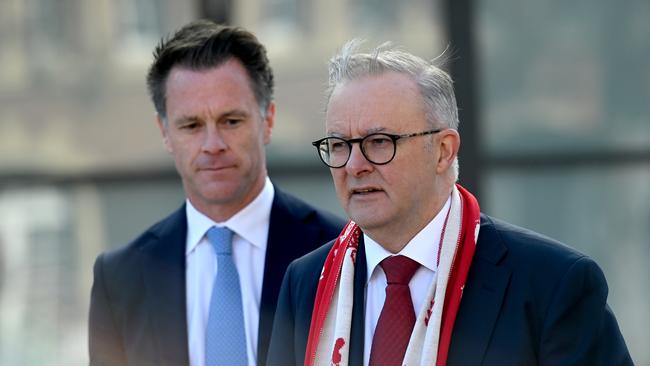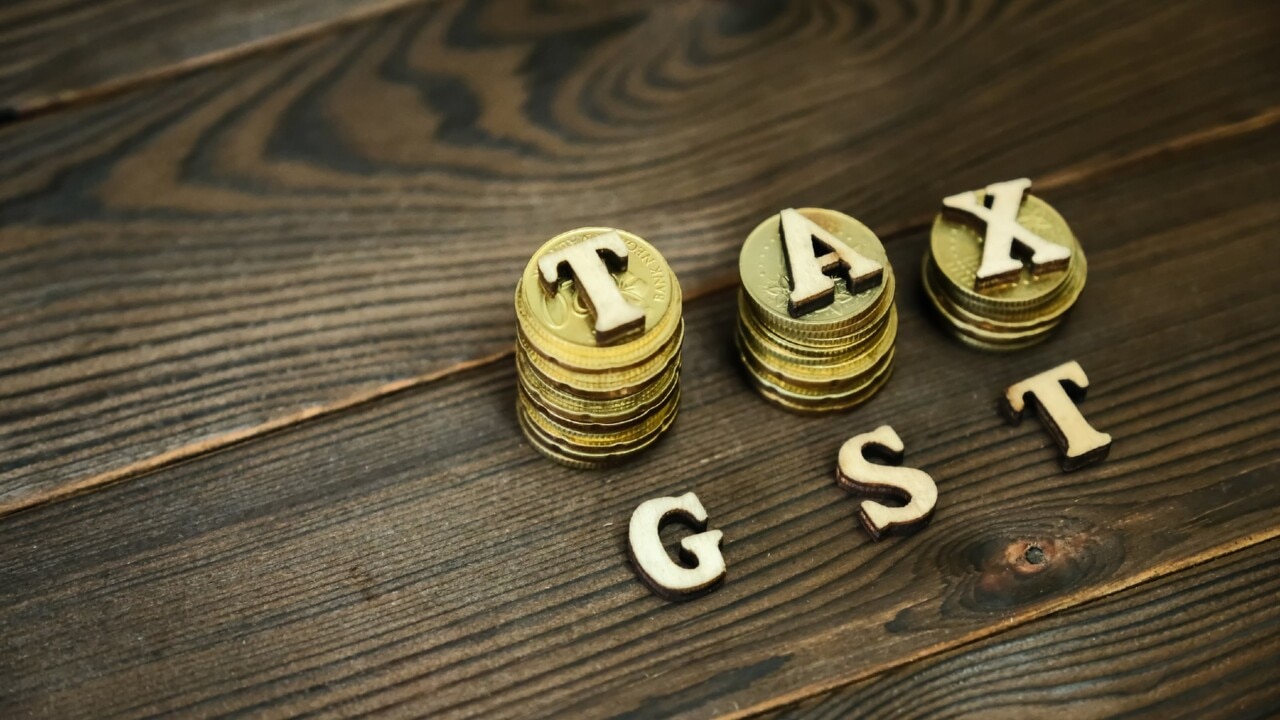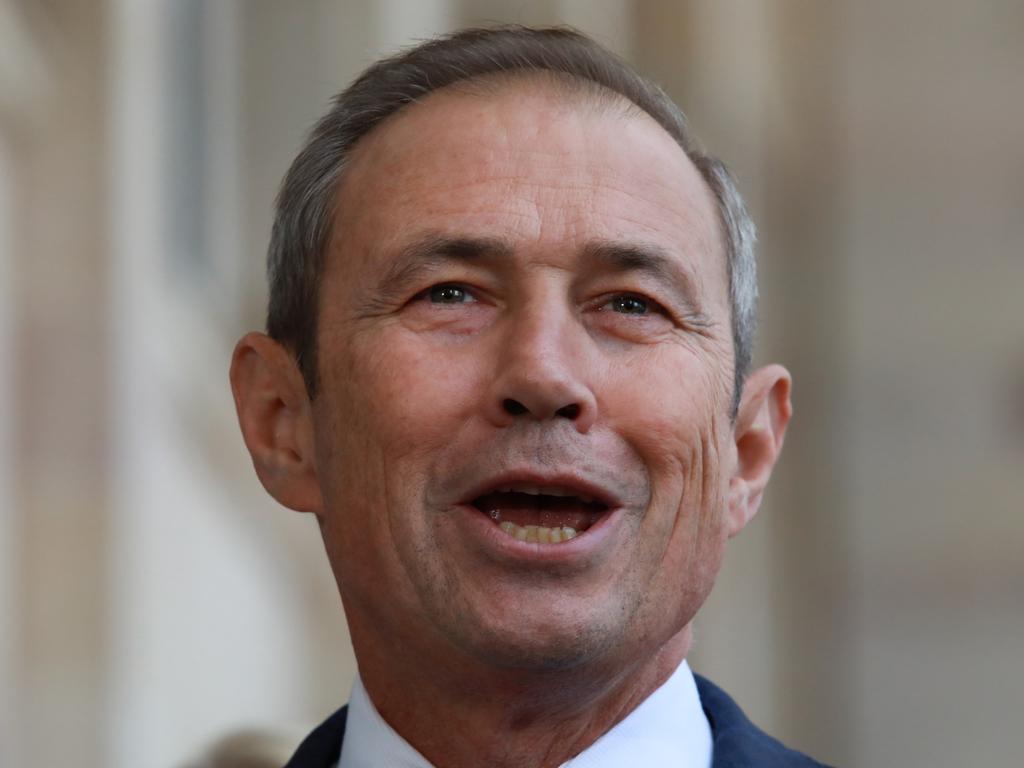NSW demands a per capita GST carve-up
Anthony Albanese faces a Labor revolt led by NSW Premier Chris Minns, who demanded the GST guarantee for WA be scrapped for a per-capita payments model.

Anthony Albanese faces a Labor revolt led by NSW Premier Chris Minns, who demanded the GST guarantee for Western Australia be scrapped for a per-capita payments model, one day before Jim Chalmers puts the future of fuel excise on the table in talks with his state and territory counterparts.
The showdown between Dr Chalmers and NSW Treasurer Daniel Mookhey, who described the GST distribution payments as “absurd”, comes as the federal Treasurer revealed he would address dwindling fuel-excise revenue in federal Labor’s near-term tax agenda.
The Minns government’s proposal to allocate the GST by population, which could leave smaller states such as South Australia and Tasmania worse off, comes as Dr Chalmers will on Friday discuss the next steps for fuel excise with state and territory treasurers ahead of the May 14 budget.
Dr Chalmers has come under pressure to shield transport revenue streams after the Intergenerational Report last August warned of an immediate threat to the $14bn-a-year fuel excise cash cow, due to the rapid transition to electric vehicles and fuel-efficient cars.
Following years of pressure from motoring groups and state and territory governments for the commonwealth to introduce a road-user charge that captures electric vehicles, Dr Chalmers revealed he would raise the issue at Friday’s Council on Federal Financial Relations meeting.
Mr Mookhey will make the case for major changes to the GST carve-up with his federal counterpart at the meeting, with any refusal by Dr Chalmers likely to affect the attitude of the state towards funding negotiations for health, education and the NDIS.
The political push comes despite Mr Albanese unequivocally ruling out any tweaks to the GST sharing deal that has pumped billions of extra dollars into Western Australia, the richest state where Labor picked up four seats from the Liberals at the last election: Hasluck, Tangney, Swan and Pearce.

The conflict with NSW comes as the federal government seeks to increase the rate of growth in state contributions to the NDIS beyond the previous threshold of 4 per cent a year in a bid to make the scheme’s spiralling costs more sustainable.
The escalation of the political brawl over the GST carve-up also came as West Australian Premier Roger Cook labelled his NSW counterparts “whingers” over their complaints about their falling share of GST revenues.
Mr Minns said on Thursday he did not want to ignite a “race to the bottom” with federal Labor but rejected Mr Albanese’s claim the GST carve-up was “done independently” of government.
The NSW Premier took aim at the temporary 2018 deal struck with WA – extended by Dr Chalmers in December until 2029-30 – which will hand the booming state economy an extra $6.2bn in GST revenue for the coming financial year.
NSW could be up to $10bn worse off over the next four years after its share of the annual GST take was slashed.
“In 2018, the system was changed,” Mr Minns said. “If the previous regime was in place, we would have got 94c in the dollar. Now we’re looking at a situation where we’re going to get 86c.
“A lot of that money is going to be sent to Western Australia, which is chock full of cash from the mining boom or down to Victoria, which is now a welfare state … Something’s got to change.”
Mr Minns said the “easiest way” of overhauling the system was to distribute the funds based on population size, with top-ups for smaller states to correct for service delivery challenges. “If NSW were to receive each share, based on its population, we would have an additional $3.6bn, which means in personal terms, I could employ an extra 10,000 police and 10,000 nurses both,” he said.
Mr Albanese said on Thursday he recognised that the NSW Treasurer was “new to his job” and pointed out that the Commonwealth Grants Commission operated “at arm’s length” from the government. “It (the GST carve-up) is not something that my government has direct involvement in,” he said.
Responding to the jibe in state parliament, Mr Mookhey declared: “You can be in my job for a long time or you can be new to my job. The reality is we have a responsibility and we have the ability to make a change if we so choose. “There’s nothing sacrosanct about the way we do it. We can do it better.

“We should allocate the GST according to the number of people in each state, and then we should use the balance of federal-state relations to correct for the service-delivery challenges.”
Dr Chalmers spoke with Mr Mookhey and South Australia Treasurer Stephen Mullighan ahead of Friday’s Council on Federal Financial Relations meeting. He said the states and territories “would like more money” but needed to recognise the commonwealth budget was also under pressure.
“Our interest here is in working with the states rather than against them,” Dr Chalmers said. “When it comes in particular to the issues that Daniel Mookhey has been raising about the Commonwealth Grants Commission process, that process is at entirely arms length from us. That is an independent process.”
Speaking at a CEDA event in Sydney, Dr Chalmers said: “Every time there is a determination about distribution of the GST there are inevitably some states and territories who are happy, some states and territories who are not especially happy.
“That’s what’s happened on this occasion. We will always try and do what we can for the people of NSW but also for the state and territory governments to try and help them deal with these pressures that they’re under.”
Dr Chalmers said he and Mr Albanese were keen to work on the GST issue with the states and territories instead of being at “cross purposes”.
Independent economist Chris Richardson backed a simpler methodology for the GST, but said it was important to have a bigger pot and adjust for differences between states based on indigeneity, size and remoteness.
“If you wanted a simpler system, you should throw a bunch of things into the pot. Not just GST, but also mining royalties,” Mr Richardson said. “We should have stronger states help weaker states. These days we don’t have strong states helping weak states. We have strong states helping a stronger state”.
Additional Reporting: Paul Garvey







To join the conversation, please log in. Don't have an account? Register
Join the conversation, you are commenting as Logout